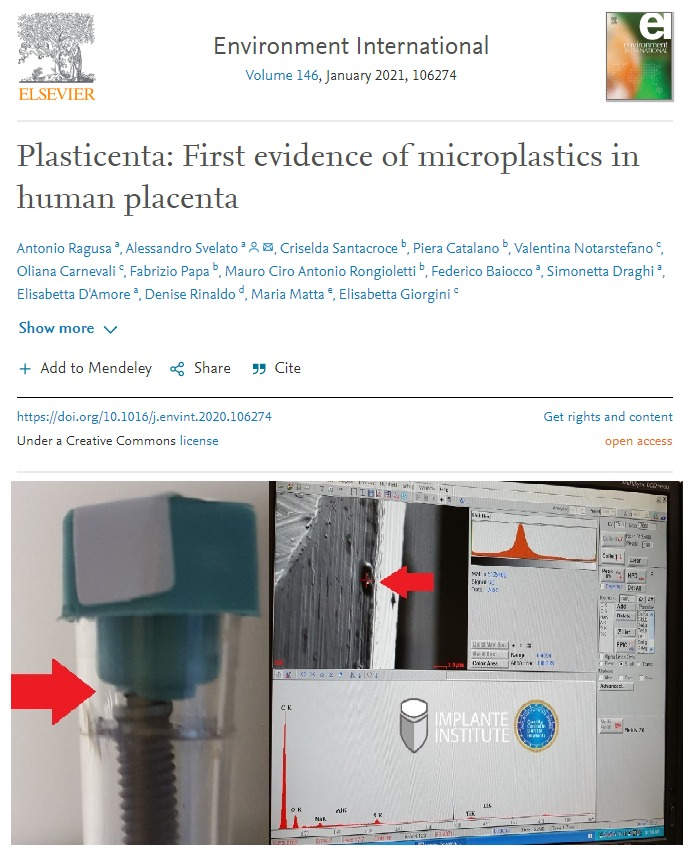Plasticenta: First evidence of microplastics in human placenta
Link: https://www.sciencedirect.com/science/article/pii/S0160412020322297
Authors: Antonio Ragusa, Alessandro Svelato, Criselda Santacroce, Piera Catalano, Valentina Notarstefano, Oliana Carnevali, Fabrizio Papa, Mauro Ciro, Antonio Rongioletti, Federico Baiocco, Simonetta Draghi, Elisabetta D'Amore, Denise Rinaldo, Maria Mattae, Elisabetta Giorginic.
https://doi.org/10.1016/j.envint.2020.106274
Environment International
Volume 146, January 2021, 106274
Abstract
Microplastics are particles smaller than five millimeters deriving from the degradation of plastic objects present in the environment. Microplastics can move from the environment to living organisms, including mammals. In this study, six human placentas, collected from consenting women with physiological pregnancies, were analyzed by Raman Microspectroscopy to evaluate the presence of microplastics. In total, 12 microplastic fragments (ranging from 5 to 10 μm in size), with spheric or irregular shape were found in 4 placentas (5 in the fetal side, 4 in the maternal side and 3 in the chorioamniotic membranes); all microplastics particles were characterized in terms of morphology and chemical composition. All of them were pigmented; three were identified as stained polypropylene a thermoplastic polymer, while for the other nine it was possible to identify only the pigments, which were all used for man-made coatings, paints, adhesives, plasters, finger paints, polymers and cosmetics and personal care products.
In conclusion, this study sheds new light on the level of human exposure to MPs and microparticles in general. Due to the crucial role of placenta in supporting the foetus development and in acting as an interface between the latter and the external environment, the presence of exogenous and potentially harmful (plastic) particles is a matter of great concern. Possible consequences on pregnancy outcomes and foetus are the transgenerational effects of plasticizer on metabolism and reproduction (Lee, 2018). Further studies need to be performed to assess if the presence of MPs in human placenta may trigger immune responses or may lead to the release of toxic contaminants, resulting harmful for pregnancy.

